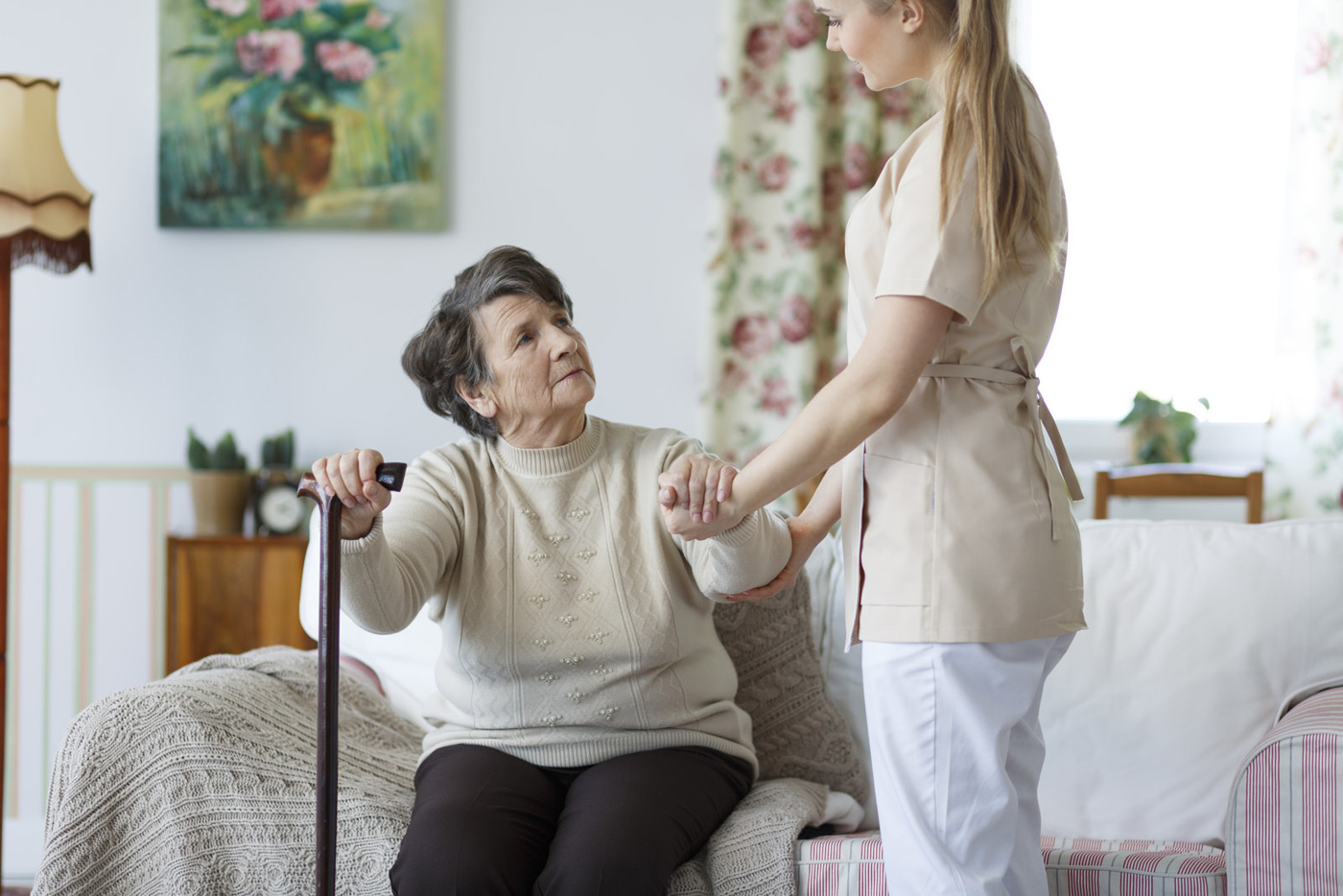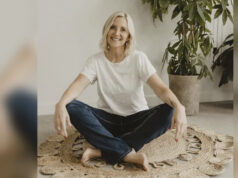Suzanne: And welcome back, everyone, to Answers for Elders Radio Network. And we’re here with renowned aging in place expert across the United States, Dr Jill Bjerke. Dr Jill and I were talking about aging in place. What does it mean? And how can you keep your home safe? And she has an program called silver spaces dot com. You can go to our website and learn a lot about how to keep your home safe. And Dr Jill, we’ve been talking about planning, we’ve been talking about, you know, areas that it may be right for you to stay at home while you age, it may not be. And so obviously, we, I want to talk a little bit about um you shared a statistic with me not too long ago, about aging in place, who don’t plan. Do you wanna share that with me again?
Jill Bjerke: This came from the CDC. Fifty percent of adults over 65 who fall and experience a serious injury may never be able to live independently or may have to go to a nursing home because of their injuries. These are preventable. =I don’t know what caused these things. It usually is a trip and fall, such as from a slippery throw rug. For example, one of the things we do look at is your floor covering. Say you have vinyl tile in your bathroom, and it’s slippery. Well, there’s a coating you can paint on there to give it more resistance. Same thing in the kitchen, if you’ve got water on your floor, and you don’t have a slip resistant coating, that’s a perfect place to slip and fall. And these are things that we point out in the online assessment at SilverSpaces.com. These are the modifications that you can do to keep yourself safe and to keep yourself.
Suzanne: And these are simple. These are simple. They’re not, they’re not, you know, remodeling, doing a whole kitchen, remodel. There’s things you can do. For my lower cabinets, I have these little pull out things, so I don’t have to reach way back and hurt myself. Basically, I can pull out a drawer, and that’s been really simple. It’s wasn’t a big deal to put those in.
Jill Bjerke: Another thing that people don’t think about, often when I give presentations. I tell people to think about having a tennis ball in their hand. That’s what it’s like to have arthritis. So instead of having the door knobs or that type of knob on your cabinetry on your doors, lever handles, which just take a push is such a better solution. These are the types of solutions that we offer to people to try and make their homes safer. You can do a whole bathroom remodel and take your tub out and put a walk in shower. Yeah, that’s logical, if you want to do that, and if, if it’s in your budget.
But there are so many other smaller things that you can do. And again, it goes back to your lifestyle. Remember, as we get older, we tend to shuffle. So instead of having that 3″ pile carpet in my living room, maybe I should have something that is maybe an inch to an inch and a half, with not as much pad, or that I’m not shuffling and I won’t trip as much. Looking at the corners as I said of your furniture. If your coffee table has sharp corner, and you trip and fall, you could set yourself up for a serious injury. I think about how your life is changed. We start to lose our peripheral vision as we grow older. So we recommend having a very strong color differential between the color of your floor and the color of your walls. So your brain knows where you are in space. There are many things that are not expensive. But we just don’t think about things, because it comes on so slowly.
Suzanne: Yeah. And you’re, you know, you’re so right, we just don’t think about it. Certainly for us to be aware, a little bit more aware. I have animals, and I took a fall earlier out in a parking lot. Thank goodness for my dog. But I tripped because she walked in front of me, and somehow when I stepped, I got caught in her leash, and I fell, and luckily I was fine. You know, I have plenty of padding on my body, but that doesn’t necessarily mean anything. But the important part is, is that we never know. I’m in my mid sixties. Right. And I know what that could mean potentially. And I was very lucky, but it causes you really think about what would happen if I was in this scenario. Also, there’s things we can’t do anymore. And I think you hit the nail on the head. I know for me there’s a lot of things I can’t do anymore as much as I would love to because I suffer from arthritis. I have arthritis in my joints, and a lot of things. So walking for a long time is not on my list anymore, right? And things like that. There’s organizations that can help us. Here in the Greater Puget Sound, we have an organization called Sound Generations, and they help with modifications, and things like that. Are there other organizations like that?
Jill Bjerke: Yes. Our resources page on our website lists a whole host of different national organizations that have funding options. Obviously, there’s some options for veterans. There are some options based on your income through Medicare, Medicaid. You have to qualify for it, but certainly there are options there. But we have accumulated all that information on our website just for that purpose. So people have a place to turn to get that kind of information.
Suzanne: So go to SilverSpaces.com, and in closing, I just want to reiterate to everyone, it’s accessible to pretty much everybody. You can go onto your website and when you get there, obviously what happens?
Jill Bjerke: Well, we have so much information there, and one thing I want to mention is that you can sign up for a monthly newsletter, and our newsletter sends out all kinds of tips, information, things that realize things that people don’t know. So you can sign up for the newsletter, and it comes out monthly, and that will give you up to date information on maybe new products, things that you never thought about before. We’re trying to keep people informed and safe in there.
Suzanne: Dr Jill, it has been such an honor and a pleasure to have you on the program today. It went way too fast, and we are looking forward to hopefully having you back again soon. I would love to do that. And as we talk about, I think we all want to stay home and stay independent as long as possible. And we’re so grateful for all you do to help us do that. So thank you again for being with us.
Jill Bjerke: Thank you Suzanne for this opportunity,
. . .
Suzanne: I would like to thank our guest who has been with us this hour, Dr. Jill Bjerke, and I want to remind each and every one of you that 50% of older adults who fall either can never live independently, or will have to move to a nursing home. And every 20 minutes in this country, an adult over 65 dies from a fall. So think about how you can keep your home safe in the future. And if you can, it’s a great way to make these changes now. So go to SilverSpaces.com, get information on little things that you can do over time in the early stages of your retirement, so that you can stay independently as long as possible.
And I’d also like to welcome each and every one of you that have joined us for the first time across the U S. We’re so excited to be sharing and coming into your homes, or your vehicles, or wherever you are, listening to our programs. But we also are on the Salem Podcast Network, as well as on your favorite podcast platform. We have over 1,000 podcasts that you can listen to, that can guide you through later life.
And I always end with the story. And one story that we’re going to talk about today is about professional caregivers.
Becky has been a professional living caregiver for 20 years, a loving and caring individual. She spends 24 hours a day being there for those who are in the twilight years, and for the last three years, she’s been caring for Jim. He’s 88 and a vet who fought for our country and his wife close to 60 years, passed away about seven years ago. But when Becky arrived, Jim, who had lived alone, had just come home after breaking his hip. Jim shares many stories with her about his life as a proud veteran, she understands the difficulty he emotionally has to be vulnerable and yet he needs her now 24 hours a day. She understands his need to be prideful and she works fearlessly to maintain his dignity and treats him every single day with respect.
And each day, Becky wakes up and uses all of her strength to get Jim up and help him shower and dress. She feels like she’s his protector, his best friend, his chef, his personal shower woman, his driver, his private nurse, his everything. She doesn’t hear the phone ring there much anymore. So Jim lives each day wondering about the lives of his son and his seven grandchildren, and he watches Facebook with a glimmer of hope to see maybe his loved ones. But as he scrolls, all Becky needs to see is Jim’s face. She knows instinctively that they probably won’t be posting anything tomorrow either. They’re just way too busy living their own lives, which don’t include Jim. Another day without a family connection. Another day of Jim feeling lonely and forgotten.
So many caregivers like Becky live with the pain of knowing that the ones they care for tend to slip further and further away. They strive to make the day the best it can be, and yet they’re there to cope with the disappointments, and the sadness of loneliness. If you know a caregiver, thank them. Thank you, Becky. Thanks for the way you honor and care for Jim and also thanks for holding out hope that someday, sometime, he will get to connect with those he loves before it’s too late.
Until next week, everyone, be good to each other.











